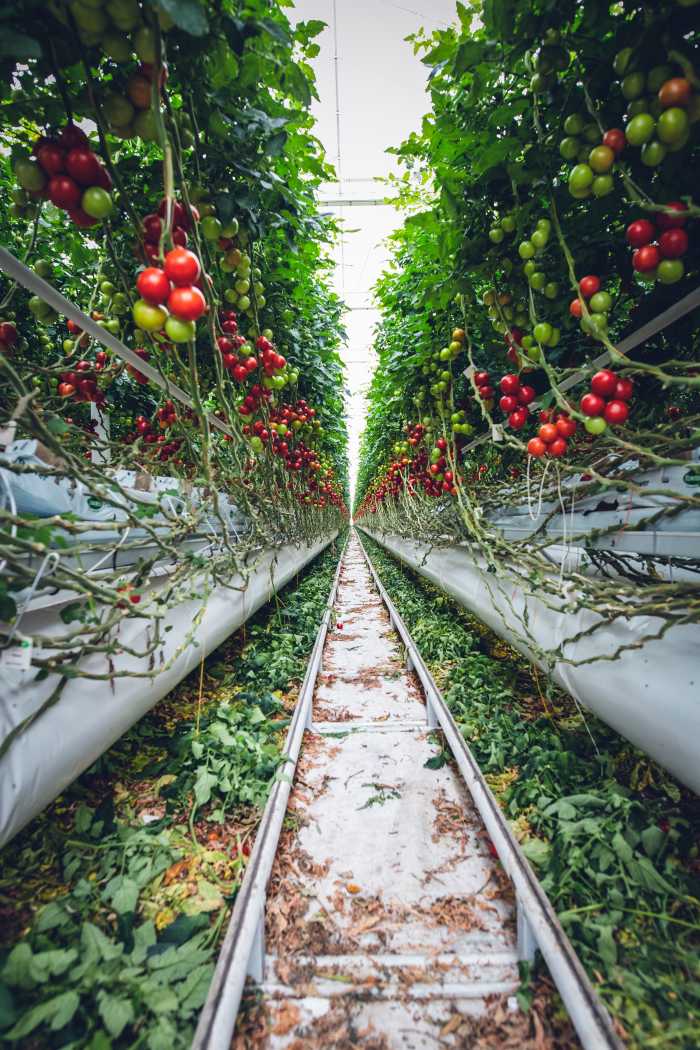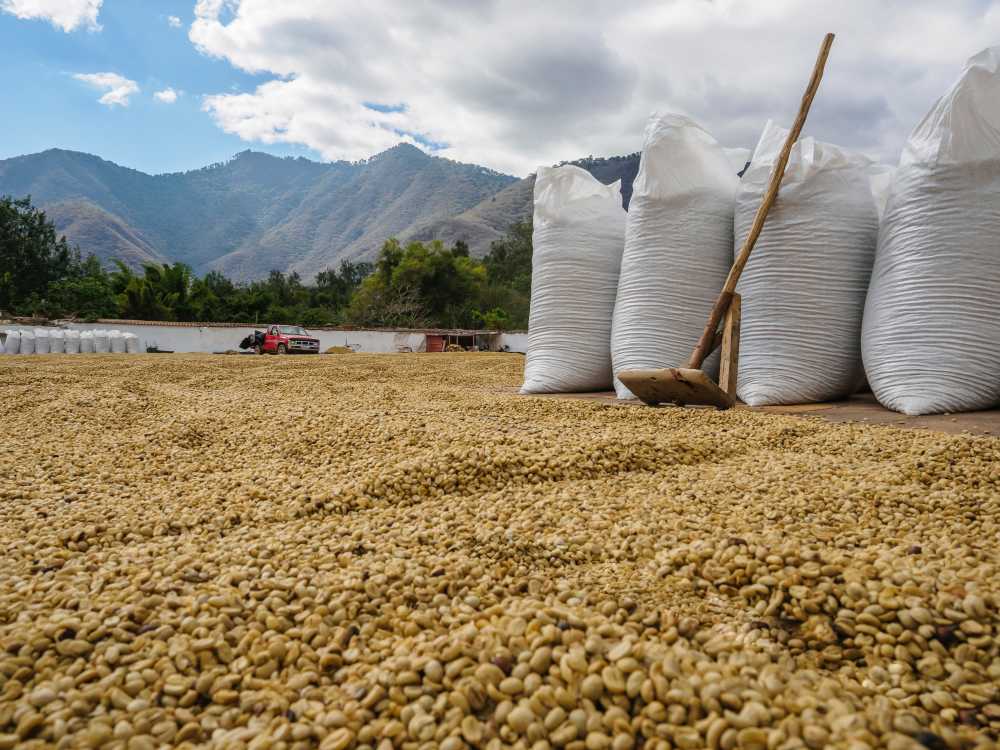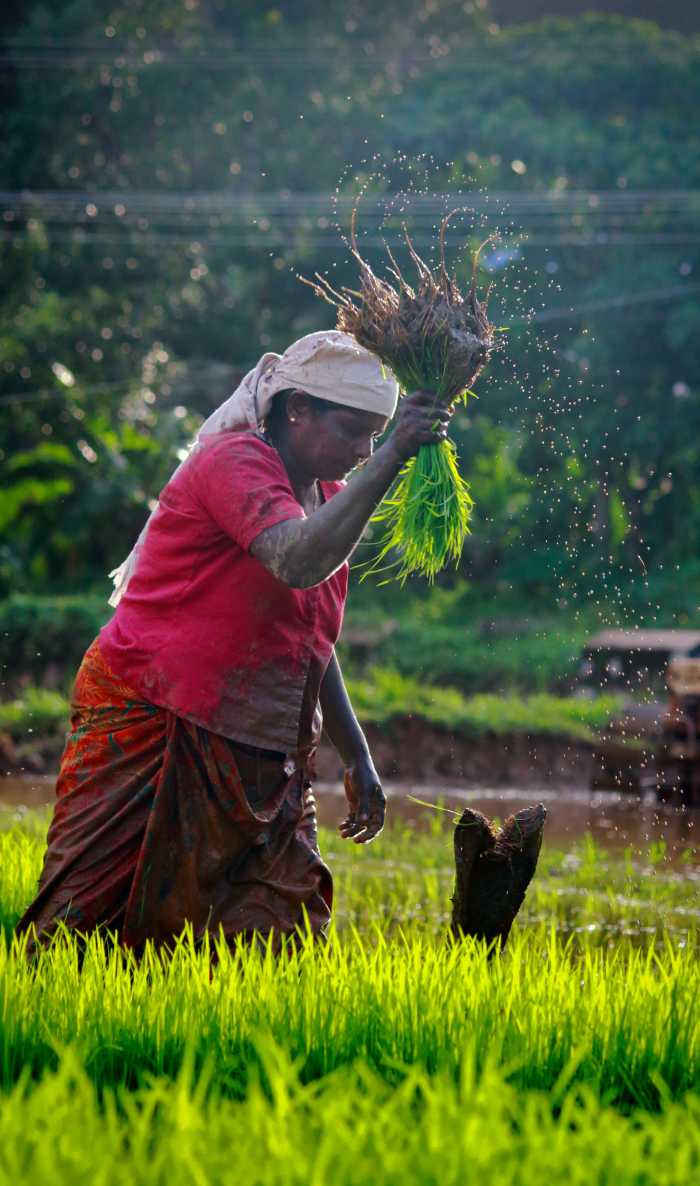Investing in the transition to climate-smart food systems
How can investors propel the current food revolution?

The trend for healthier and more conscious eating, as well as increased demand to know where food comes from is not new. responsAbility, for instance, has been financing fair trade and organic agribusinesses since 2005. However, the need to solve the underlying problem with our food system has never been greater.
This is why 2021 will be remembered as the year in which the world re-focused its attention on the urgent need to transform the way we produce and consume our food.
Why do we need to transform food systems now?
Today’s food systems generate USD 12 trillion in hidden social, economic and environmental costs, but are valued at only USD 10 trillion. This negative balance is explained mainly by the adverse impact on climate, biodiversity and the society. As the global population grows to hit 10 billion by 2050, these costs are only expected to widen. Simply put, the status quo is no longer affordable.
The World Resources Institute summarizes the scale of the crisis well when it warns:
“Feeding the planet would entail clearing most of the world’s remaining forests, wiping out thousands more species, and releasing enough greenhouse gas emissions to exceed the 1.5°C and 2°C warming targets enshrined in the Paris Agreement, even if emissions from all other human activities were entirely eliminated.”
The Intergovernmental Panel on Climate Change is more explicit by dubbing it a "code red for humanity."
The good news is that unlike other carbon-intensive industries, the solution is found in the same food system, and there is a growing interest from investors and corporates in meeting the increasing demand for healthier, more equitable and more sustainable food.

Key facts about food production
Food systems generate up to one third of global greenhouse gas emissions. The largest emissions come from clearing forests for farms, from livestock, and from the use of synthetic fertilizers.
Food production accounts for up to 80% of global habitat destruction, for 70% of global freshwater consumption and about 30% of total energy use.
More than three billion people around the world were not able to afford a healthy diet while at the same time around 1.9 billion people globally are overweight or obese.
Approximately 40% of food produced is either lost or wasted, yet almost 700 million people are undernourished. But wasted food isn't just a social problem, it is an environmental one. When food is lost in the value chain, we also lose all the energy and water it takes to produce, store, transport, and package it. Also, when food rots in fields or in landfills, it produces methane, a greenhouse gas at least 28 times as potent as carbon dioxide.
The business case for feeding 10 billion people within our planetary boundaries
The business community agrees that the potential market for this endeavour is large, profitable, and grossly underfunded. According to estimates, USD 350 billion per year of investment is needed to transform the global food system and unlock USD 4.5 trillion in new business opportunities per year.
Investors and entrepreneurs are not only flocking to develop the next alt protein or vertical farming solution, but they are also seeking less “futuristic” and equally needed innovation. Much of this is taking place in the developing world, where climate change will disproportionally affect the rural poor and could trigger the migration of 216 million people.
There are several sub-sectors via which investors can gain exposure. At responsAbility, we are currently looking at the following:
Investing in solutions for food loss
About 8%-10% of all human-caused greenhouse gas emissions could be reduced if we stopped food loss and waste. Food waste typically occurs at the retail and consumer levels whereas food loss takes place during production, post-harvest and processing stages.
The problem differs between countries. In developing regions, food losses during processing (14% – 21%) are much higher than those in developed regions (< 2%). In industrialised countries, food wasted at retail and consumer levels represent as much as 25%.
While better retail practices and changing consumer behaviour are parts of the solution in developed countries, reducing food loss in developing nations can be practically implemented through efficient post-harvest solutions for storing, drying and transporting food. Hermetic storage and solar-powered cooling facilities are two examples that have shown vast growth potential, as new technologies and scale are pushing down costs for mass adoption.
Investing in regenerative agriculture

The introduction of nuanced and pragmatic regenerative agriculture along with organic production in the developing world allows farmers to de-commoditize their products through certification and access to more profitable markets. And importantly, there is broad agreement that regenerative practices increase soil health, helping smallholder farmers become more resilient to climate change.
There is optimism as well that the carbon sequestered by improving soil health can open up the potential of regenerative agriculture for carbon capture as well as sequestration payments for farmers.
Currently, agriculture produces just over 1% of carbon credits due to the challenges inherent in soil carbon measurement. However, technology and verification standards are advancing rapidly to meet the interest of net-zero corporates, food companies and policymakers in the subject.
Investing in sustainable and inclusive retail and food brands
Local food companies in developing countries are increasingly catering to the growing market of healthy and sustainable food, particularly for wealthier and environmentally conscious urban middle classes.
But competition in this segment can be fierce, so some innovative companies have been backward integrating their value chain by sourcing directly from farmers and by processing and efficiently distributing high margin products. The result is scalable and profitable business models with less fragmented value chains that support reduced food loss, more income and more sustainable practices for farmers.
What options are there for investors to get involved in sustainable food systems?

Last year, the agri-food technology sector attracted almost USD 26 billion in venture capital, a 16% year-over-year increase. While investing in food innovation is needed, feeding the planet sustainably requires directing funds to the millions of smallholder farmers who produce much of the world’s food.
Investing in sustainable food in emerging markets is challenging, so most private money to the sector flows as working capital for commodity finance. This can mitigate risks through short-term and structured debt investments. These investments are then normally directed to cooperatives and other agribusinesses that are sourcing from farmers and linking them to high-value markets.
But to promote the transformation of food systems, more long-term capital to drive the growth of inclusive and scalable agribusinesses is needed, both in the form of equity and debt. Technical assistance should also be offered with the financing to support the transition to greener and more efficient post-harvest facilities, and to help supplier farmers transition to climate-smart practices.
responsAbility is betting on blended finance as one option for private capital to participate in this transformation. In blended funds, any loss is absorbed initially by public investors such as governments and foundations, making the funds more attractive to private money.
Can the world feed 10 billion people sustainably?
We are cautiously optimistic as the current momentum is led by younger generations, consumers and voters. And policymakers at the UN Climate Change Conference (COP26) have a mandate to advance on their commitments with the planet, which undoubtedly includes promoting the shift to healthier diets, zero-deforestation and regenerative agriculture. These same forces are not only unlocking a savvy cooperation between public and private investors, but also are likely to increase the scale and returns of the businesses participating in the food revolution.

Mauricio Benitez
Mauricio Benitez is responsAbility’s Food Systems Lead. He oversees the development and implementation of new investment solutions related to climate finance, sustainable food and natural capital and is currently working on a climate impact investment solution to help address key challenges of the global food system. He joined responsAbility in 2009, after 10 years working in Latin America and Eastern Europe, supporting small banks to improve credit risk management and strategy. Mauricio is a Swiss-Bolivian Economist and holds an MEcon degree from the University of the Western Cape and an MA in Development Management from the Ruhr Universität Bochum.